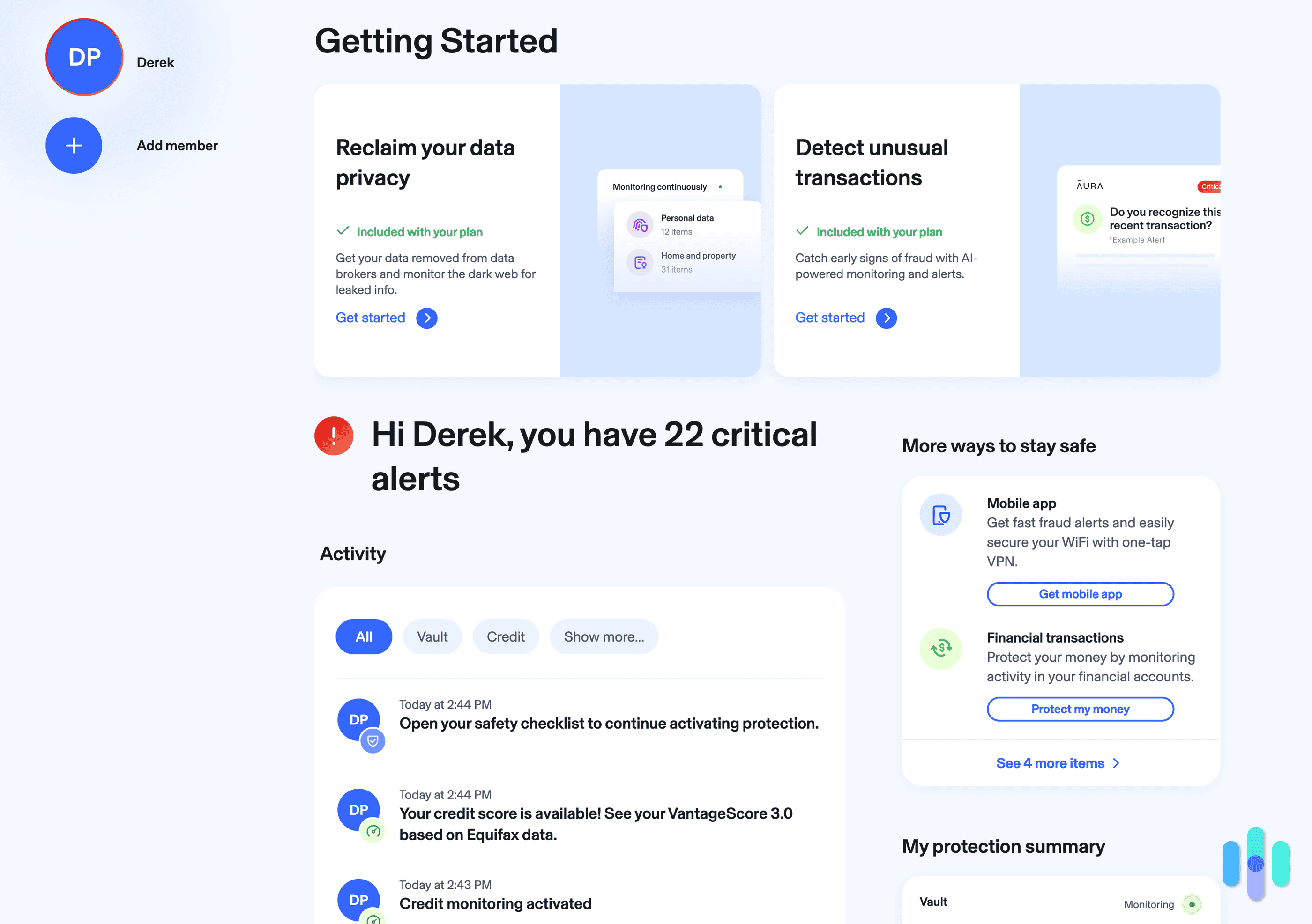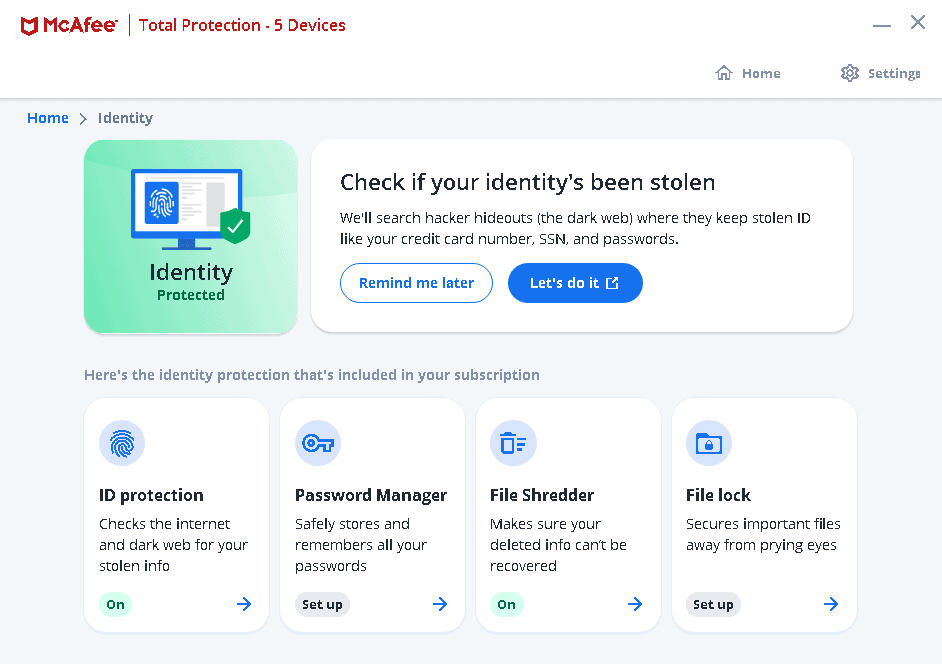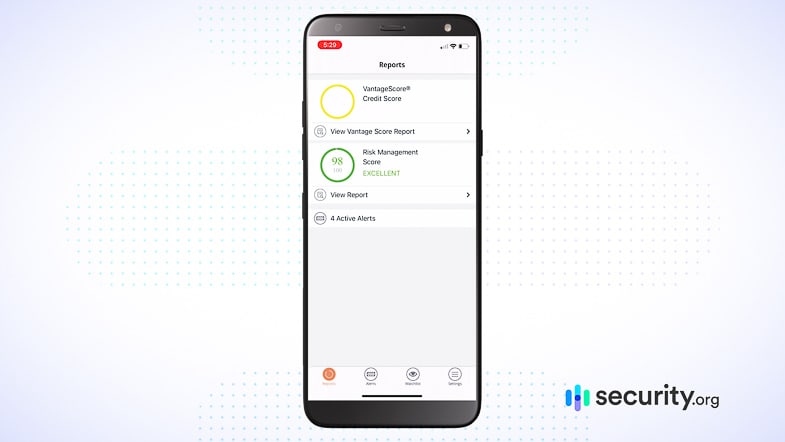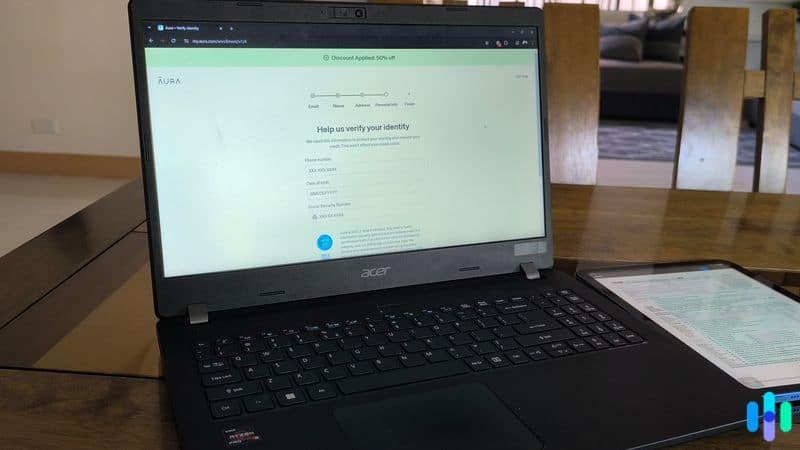Most cases of identity theft revolve around someone using your identity to steal money either by taking out loans in your name or collecting benefits meant for you. But, that’s not the only type of identity theft. Criminal identity theft revolves around someone using your identity to escape the consequences of their actions. And the results can be just as devastating even though there are less than 6,000 reports per year.1
Our identity protection experts took a deep dive into this unique form of identity theft to better understand how it occurs and figure out the best ways you can protect yourself. We’ll cover everything from automated protections like identity theft protection services to things you can do yourself like checking for suspicious tickets with your local police department.
>> Learn About: How to Compare Identity Theft Protection Services in 2024
Key Findings
- Criminal identity theft accounts for less than one percent of all identity theft reports in the U.S.
- Keeping driving and vehicle documentation in a secure location can help prevent criminal identity theft.
- Your credit score can show signs of criminal identity theft by showing indicators of unpaid tickets or fines.
- Clearing your name after becoming a criminal identity theft victim can become a challenging task that requires help. Identity theft protection services can provide that support.
What is Criminal Identity Theft?
Since all identity theft is criminal, when we talk about criminal identity theft, we’re specifically discussing identity theft as it relates to someone using your identity when they get caught committing a crime. This puts you on the hook for someone else’s unlawful behavior. That means the next time you get stopped for speeding, the officer could come to your window with an arrest warrant.
Here’s how criminal identity theft works. Once someone gets your personal information, they can use that when they get pulled over or stopped for a crime. They tell the police all of your information and show them fraudulent documents that look real. And since they have your actual information, the documents pass the initial check by the police.
>> Read More: Securing Confidential Personal Data Both Online and Offline
What Law Makes Identity Theft a Crime?
To clear up why we said that all identity theft is criminal, we wanted to cover what laws make identity theft illegal. Identity theft is a federal crime meaning it’s illegal no matter where it occurs as long as it’s on U.S. soil. That’s due to a law called the Identity Theft and Assumption Deterrence Act (ITADA) of 1998.2
Pro Tip: Even though there are laws against identity theft that can help you get restitution, we’d prefer never having to deal with it in the first place. That’s why we created a 2025 guide to identity theft protection. It’s the same guide we use to keep our families safe.
What surprised us in our research was that before 1998, there weren’t any specific laws against identity theft. Instead, it was punished under various anti-fraud laws. But, there was no mandate for restitution meaning the victims were left without help.
The ITADA allowed judges to include compensation to the victim as part of the sentence. In the case of criminal identity theft, the restitution can include compensation for your time spent recovering your identity.
Get ID Theft Protection
Check out our favorite identity theft protection services.
Consequences of Criminal Identity Theft
Normally, we think of the consequences of identity theft as damage to our credit score or funds being stolen from our bank accounts. And although that’s not the main consequence of criminal identity theft, your credit score can still be impacted by it. Unpaid tickets show up as debt on your credit report and as missed payments depending on how long ago the ticket was issued.
That’s far from the only consequence though. Here’s an overview of the potential consequences of criminal identity theft:
- Failed background check — Someone giving your information after getting caught committing a crime puts that criminal history on your record. This can result in failed background checks.
- Arrest warrant — Additionally, an arrest warrant for you could go out if the crime is serious enough. If that happens, you will have to clear your name and establish your factual innocence in court.
- Unpaid fines and tickets — A ding on your credit score could be the least of your worries due to unpaid fines and tickets. With enough of these on your record from criminal identity theft, your car could end up impounded on your first parking ticket.
- Contempt of court charges — If a court sentences whoever is using your identity to house arrest, parole, or any other type of court order and then disobeys that court order, that contempt of court charge would end up on your record.
How to Prevent Criminal Identity Theft
Up to this point, we strayed far from what we usually find when learning about a new type of identity theft. When it comes to preventing criminal identity theft though, the steps we need to take come down to protecting our personal information. That’s the same focus we take in our guide to protecting yourself from identity theft.
While it’s the same core focus, we can still tailor that focus to preventing criminal identity theft. Here’s how to protect your personal information specifically against criminal identity theft:
- Store your car paperwork securely — We store a lot of documents with our information in our car like our registration. We put it all in our glove box and then lock the glove box to ensure its security.
>> Read About: A Guide to Protecting Personal Data after Losing Your Mobile Device
- Keep car insurance private — Never share your car insurance unless you need to for an accident. It could be used by someone fraudulently.
- Dispose of expired licenses and identity documents — When your license expires and you get a new one, shred the old one. That way someone can’t dig it out of the trash and try to use it themselves if they happen to look like you.
- Maintain digital security — To keep our devices secure, we use top antivirus software. That keeps us safe from malware that could expose our personal information. We also connect to the internet through one of our favorite VPNs when inputting any personal information on websites.
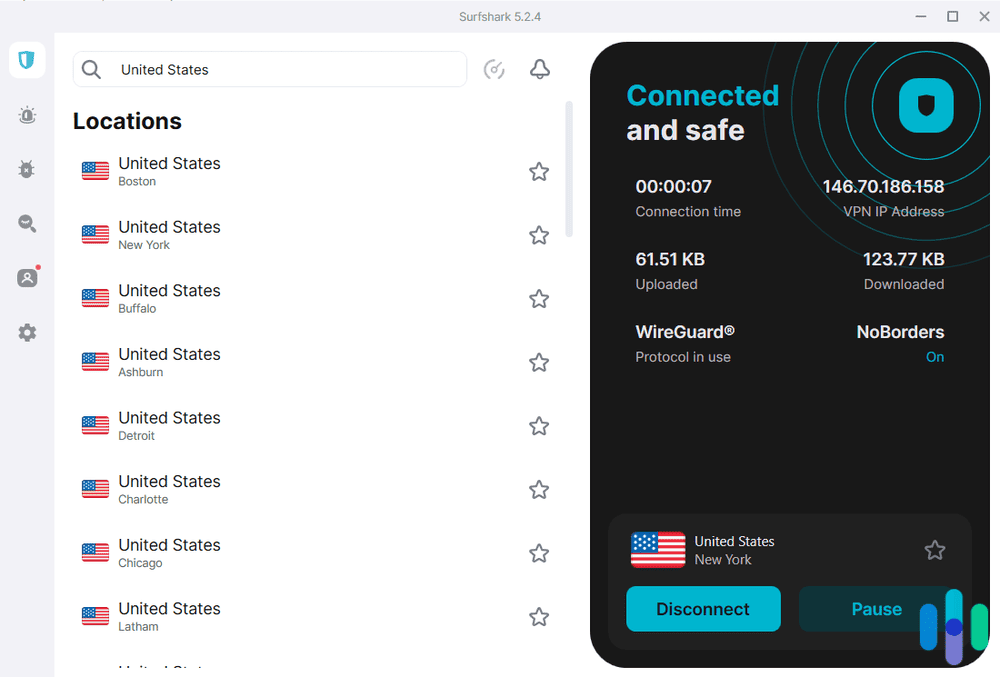
FYI: Do the words antivirus and VPN make your head spin? Don’t worry, we’ve got you covered! We made a guide to personal digital security and online safety telling you exactly what you need to do to stay safe against today’s digital threats.
- Use an identity theft protection service — All of our favorite identity theft protection services offer comprehensive monitoring services as part of their protection. This monitors the main places your information could show up, like the dark web and people search sites, before an identity theft attempt occurs.
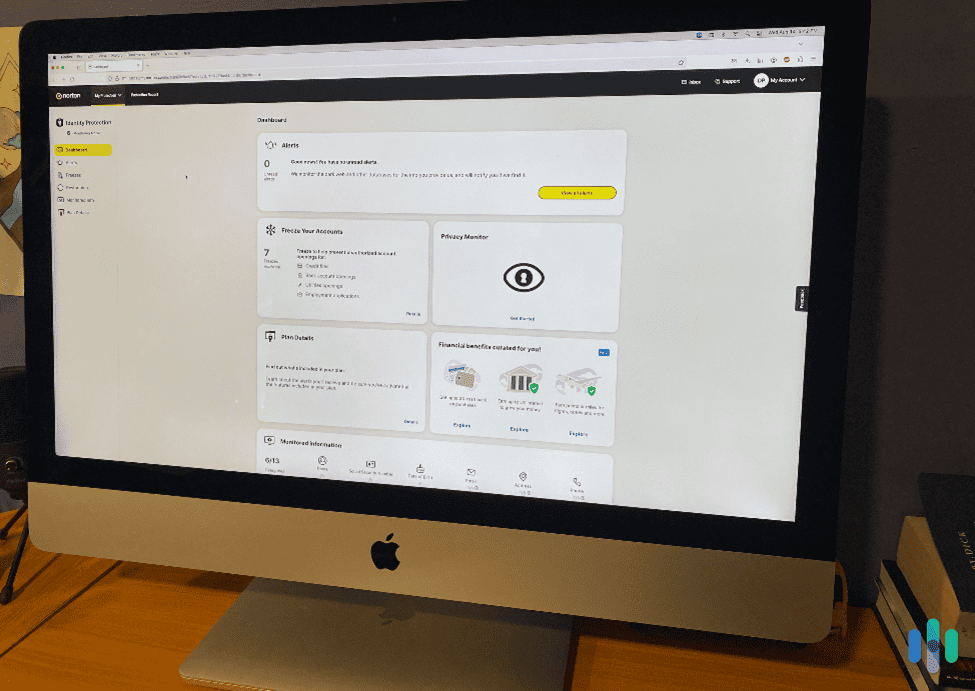
Criminal Identity Theft Warning Signs
There are some unique signs of criminal identity theft and other signs that show up for most types of identity theft. We’re going to cover them all here. To get ahead of the criminals, watch out for these criminal identity theft warning signs:
- Parking tickets you didn’t receive — Most municipalities have online portals where you can check for parking tickets. Check your local and state government for tickets once every six months.
- Court Notice to Appear (NTA) — When someone commits a crime and goes to trial for it, the court issues an NTA. This document mandates the perpetrator show up for their court date. If you receive one for a crime unrelated to you, it could be due to criminal identity theft.
- Credit score drop due to unpaid tickets or fines — Our favorite credit protection services can notice any impacts to your credit score caused by unpaid tickets or fines. When that happens, make sure the ticket is your ticket, otherwise, it could be someone else using your identity.
- Your name in court records — Someone using your identity when they get caught with a crime will cause your name to show up in court records that are unrelated to you.
How to Clear Your Name After Criminal Identity Theft
Clearing your name after criminal identity theft is different than dealing with traditional identity theft. Although, there are some similarities like reporting the incident. We determined the most important steps if you become the victim of criminal identity theft:
- Notify your identity theft protection service — As soon as you notice any signs of identity theft, always report it to your identity theft protection service immediately. You pay them for help in those exact situations.
- Start a recovery plan — Your identity theft protection service should help you create a recovery plan. If you don’t have identity theft protection, you can go to IdentityTheft.gov for government-provided assistance in creating a recovery plan.3 You’ll have to do more of the legwork though.
Did You Know: We rounded up the best identity theft restoration services that can help you get your identity back under your control no matter what type of identity theft happens. They also offer monetary coverage for your losses.
- Contact the agency with jurisdiction — You need to get in contact with whichever agency is investigating the crime and pressing charges related to your criminal identity theft incident. They’ll work with you to verify that your identity was stolen and that you are not responsible for crimes committed using your stolen identity.
- File an identity theft report — On IdentityTheft.gov, you can also file an identity theft report. You already filed a report if you used it to create your recovery plan. Filing a report creates a record of the incident giving you proof that your identity was stolen.
- Consult a lawyer — Depending on the severity of the criminal identity theft, you may need the assistance of a lawyer to clear your name. We recommend scheduling consultations immediately so you already have a vetted lawyer should the circumstances rise to that level.
Final Thoughts
Although its effects are different from most other forms of identity theft, the consequences of criminal identity theft can be just as, if not more, severe. There are a few extra steps you need to take to prevent it and recover from it as well. Not to mention, the warning signs are almost entirely different from traditional identity theft.
Now that you’re armed with our expert knowledge, you can stay safe from this unique type of identity theft too. We find the best way to stay ahead of threats though is with an identity theft protection service. That way you always receive protection from current threats no matter what next year’s identity theft trends look like.
FAQs About Criminal Identity Theft
-
Is identity theft criminal?
Yes, identity theft is a crime in most places in the world. In the U.S., there are specific laws that deal with identity theft allowing judges to add mandatory restitution to the sentence.
-
What is it called when someone uses your identity to commit a crime?
Criminal identity theft is when someone provides your identity when caught committing a crime. This can put their fines and other punishments on your record.
-
Will criminal identity theft stay on my record?
Once you prove that you were not the person to commit the crime and it was someone else using your identity, the crimes related to that incident will be removed from your record.
-
What is the Identity Theft and Assumption Deterrence Act?
The Identity Theft and Assumption Deterrence Act is the piece of legislation that makes identity theft a felony in the U.S. with a maximum sentence of 15 years. It also includes provisions for mandatory restitution.
-
Does identity theft insurance cover criminal identity theft?
Most identity theft protection coverage includes provisions to support you in the event of criminal identity theft as well. This typically includes connecting you with an expert to help you clear your name and a lawyer for any necessary legal advice.





